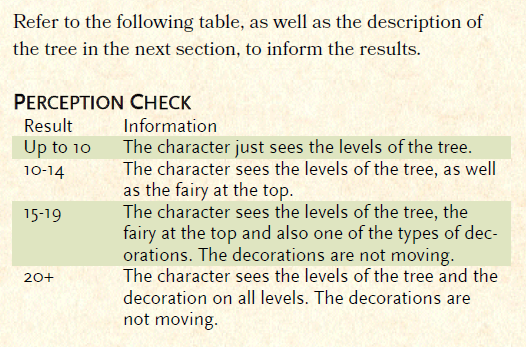DM Tutorials - DCs And How To Make Them More Interesting
I will return to the homebrew world building post next week - I'm getting my internet upgraded so that I can stream at a better rate, and I'd like to stream the next part as well as write about it! So this week I'm going to look at another part of the game; difficulty checks.
A Difficulty Check (DC) is one of the basic components of any D&D session. The rogue wants to pick that lock? Dexterity check with Thieves’ Tools. The ranger is trying to forage for some food? Survival check. The DM determines how difficult that task is going to be, some dice are rolled, and then the players succeed or fail. That’s the most straightforward way of looking at it. There’s a lot more you can do with DCs however.
One of the most common things you may hear is ‘failing forward’. I didn’t even know what this meant in a D&D context when I first heard it said, so I had to go and read up on it, and then I learned I was doing this already without even realising!
The simplest way of using a DC is as already mentioned. You set a difficulty as per the rules, the player rolls, you say yay or nay depending on the outcome. Failing forward however, means that regardless of the outcome, the story still moves forwards. For example, that rogue picking a lock rolled a fail? Perhaps it just takes longer to pick the lock and they have less time to carry out their task, or a patrol gets closer and they have to be more quiet? Perhaps they didn’t check the door was already unlocked and so the door swings open as they push their lockpick in?
If you want a good example of failing forward in movies, I once heard Han Solo in the first Star Wars movie used to demonstrate it. He failed on a lot of stuff (got Greedo to pull his gun on him, failed to persuade stormtroopers on the death star) but still moved the plot along and succeeded when he needed to (shooting Greedo and coming to Luke's aid).
-Frank
I recently published an adventure for the first time, and something that has been commented on was my table for perception checks, which could be considered failing forward. Depending on the roll result, more things are noticed, but something is noticed regardless of the roll.

I don't do critical success, it's not RAW, and there are situations where it's not really feasible that automatic success happens. I also don’t really do critical failure unless I can think of something amusing that doesn’t cause detriment to the PCs. Going back to the rogue lockpicking example, a rogue in my home game recently rolled a nat 1 on that check. So, I told him he broke his favourite lockpick. It didn’t adversely affect the movement of the story (he could have tried again, but in the end the barbarian smashed the door open in frustration) and it didn’t adversely affect the PC directly (he had other lockpicks, also he found the parts and got another PC to cast mending to repair it) but it gave everyone a chuckle at the table, and it made it feel more real, as everyone who uses a set of tools for a job has their favourite ones (I’m looking at my crochet hook collection and feeling this right now)
Another thing I do, is to use unexpected skills, because to me it gets dull asking people to roll perception or investigation all the time, and it allows the lesser used skills to get some love. It also prevents minmaxing (something I don’t personally enjoy at my table, as I feel the best stories come from characters with flaws) as my players aren’t building their characters around a great passive perception score. One of my pet peeves as a DM is people making an assumption about what I am going to ask them to roll and rolling it, without waiting to hear what I am going to ask. I don't always ask for what a player expects! So, for example, the aforementioned rogue that I play with wanted to check a door for traps. I had him roll performance, and as he checked, he hummed a song he remembered the bard singing… and something behind the door started humming along...
Sometimes I ask my players to choose the skill they would like to use and justify it. That’s how I ended up with a wizard using an acrobatics check to find a mushroom once. He stood on his head and contemplated what it was like to be a mushroom. He failed, but it made everyone laugh and as you can see, it was memorable (for me at least). I like doing this in skill challenges. Skill challenges are 4th edition mechanics, but haven’t really found their way into 5th edition. Basically it is where you have a task that needs undertaking, and you have to succeed a certain amount of times before you build up too many failures, and failing has consequences. Here are some examples of skill challenges to give you an idea of how they work - perhaps you could modify them for your games.
As you can see, there are a lot of ways to use DCs more creatively to bring life to your sessions. I hope this has sparked your imagination to find ways to use DCs more creatively!
-Mazz
